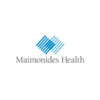Dobutamaine Versus Milrinone in Cardiorenal Syndrome (DOMICAS)
Cardiorenal Syndrome

About this trial
This is an interventional treatment trial for Cardiorenal Syndrome
Eligibility Criteria
Inclusion Criteria:
- Age >18 years
- Admitted to the hospital with a primary diagnosis of Decompensated Heart Failure
- Onset of cardio-renal syndrome (increasing creatinine>0.3mg/dl) after or before hospitalization. After hospitalization within 7 days of from the time of admission after receiving intravenous diuretics and heart failure medication optimization. Before hospitalization in the setting of escalating doses of outpatient loop diuretics and heart failure medication optimization
Persistent volume overload- For patients with a pulmonary artery catheter, peristent volume overload will include :
Pulmonary capillary wedge pressure >22mm Hg and one of the following clinical signs :2+ peripheral edema and/or pulmonary edema or pleural effusion on chest Xray. For patients without a pulmonary artery catheter- persistent volume overload will include atleast 2 of the following: 2+ peripheral edema , jugular venous pressure >10 mm Hg and pulmonary edema or pleural effusion on chest Xray
- BNP>400
- Cr-1.2-3.0
Exclusion Criteria:
- Intravascular volume depletion
- Acute coronary syndrome within 4 weeks
- Indication for hemodialysis
- Systolic Blood pressure <90mm Hg or MAP<60mm Hg at the time of enrollment
- Alternate explanation for worsening renal function , such as obstructive nephropathy , contrast induced nephropathy , ATN
- Clinical instability likely to require the addition of intravenous vasoactive drugs including vasodilators and/or inotropic drugs
- The use of iodinated radio-contrast material in the past 72 hours or anticipated use of intravenous contrast during the current hospitalization
- Underlying rhythm disorder
Sites / Locations
- Maimonides Medical Center
Arms of the Study
Arm 1
Arm 2
Active Comparator
Active Comparator
M-group
D-group
Will be given milrinone as an intravenous infusion at 0.2-0.6 mcg/kg/min for a maximum period of 72 hours and adjusted based on creatinine clearance measured by cockcroft-gault equation. It would be titrated based on hemodynamic response , urine output and at the discretion of the treating physician
Will be given dobutamine as an intravenous infusion at a maximum rate of 20 mcg/kg/min depending on patient tolerance and would adjusted based on hemodynamic response, urine output and at the discretion of treating physician
Outcomes
Primary Outcome Measures
Secondary Outcome Measures
Full Information
1. Study Identification
2. Study Status
3. Sponsor/Collaborators
4. Oversight
5. Study Description
6. Conditions and Keywords
7. Study Design
8. Arms, Groups, and Interventions
10. Eligibility
12. IPD Sharing Statement
Learn more about this trial
